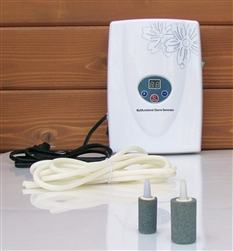According to a new study that is proving to be thought-provoking for dentists, new mothers and researchers, there is an array of bacteria present in the placenta of a pregnant mother that may play a role in the health of the baby. It may also explain the close link between urinary tract infections and periodontal disease and the risk of premature birth.
Most shocking is the idea that treating these bacterial conditions during the pregnancy may not lower the risks, meaning that women who may become pregnant need to seek treatment for bacterial conditions before initiating a pregnancy.
Findings of the new study are preliminary, but the research indicates that additional research is necessary into a number of different aspects regarding the relationship between periodontal disease and other bacterial conditions and pregnancy. Additional study is also needed related to taking antibiotics during pregnancy.
Led by Dr. Kjersti Aagaard, the study also found that it may be the placenta that determines what bacteria is found in the gut of newborn babies, not the vagina as previously thought. The placenta is a special organ grown in the body of a pregnant mother that regulates most aspects of life for an unborn baby, including hormones, nutrition, waste and more.
This study is part of a larger effort by researchers to gain a stronger understanding of what they call the microbiome, a collection of microbes by the trillions that live in and on humans. These include bacteria, and fungi and viruses are among them too. Microbes impact metabolism, digestion and other processes and are involved with obesity, diabetes and other health conditions in ways that are not yet fully understood.
When the mixture of bacteria in the placenta is a bad one, premature birth may result. Still, the connection with bacteria in periodontal disease could not be linked definitively in this study because only one study participant had gum disease.
If future studies confirm the role that the placenta plays in the establishment of gut bacteria, that could be good news for mothers and babies who participate in a cesarean section. It was previously believed that c-section babies were missing out on the bacteria they could have gained from passing through the birth canal, but this may indicate that they aren’t missing as much as once thought. And according to the study’s lead author, a c-section birth doesn’t doom a child to a lifetime of gut bacteria deficiency.
Past studies have taken a look at bacteria present on the skin and in the intestines, vagina and mouth, but focus has only recently come on the placenta. The research team started getting interested in bacteria in the placenta when they realized that the bacteria present in the vagina, long believed to transfer to a newborn’s gut, wasn’t the same kinds of bacteria found in a newborn’s gut. So where could the bacteria in the baby have come from? The placenta was the next source to consider.
The study involved placentas from 320 mostly black and Hispanic women. In most cases, they delivered on time and vaginally, but some delivered by c-section, and some had their babies prematurely.
While the placenta has not been found to be teeming with bacteria, it is made up of about 10 percent bacteria. The intestines, on the other hand, are about 90 percent bacteria. As many as 300 kinds of bacteria were found in the placenta.
Much of that bacteria is the same kind found in the mouth, and that’s similar to what’s found in the gut of babies who are in their first week of life.
This means that the link between the mouth of the mother, the placenta and the gut of newborns is strong — and that old understandings about bacteria and its involvement in childbirth are flawed. It further means that reducing unhealthy bacteria in the mouth before a pregnancy begins could contribute positively to the health of the newborn and impact whether the baby is delivered prematurely.
Read the original article here: http://biocompatibledentist.org/holistic_dentistry/study-shows-periodontal-disease-can-affect-newborns-health/


 Currently, I know that a number of you have been looking for ozonizers in order to follow my protocol (for prevention of gum disease). They can be found here:
Currently, I know that a number of you have been looking for ozonizers in order to follow my protocol (for prevention of gum disease). They can be found here: 

[…] According to a new study that is proving to be thought-provoking for dentists, new mothers and researchers, there is an array of bacteria present in the placenta of a pregnant mother that may play a role in the health of the baby. It may also explain the close link between urinary tract infections and periodontal disease and the risk of premature birth. […]